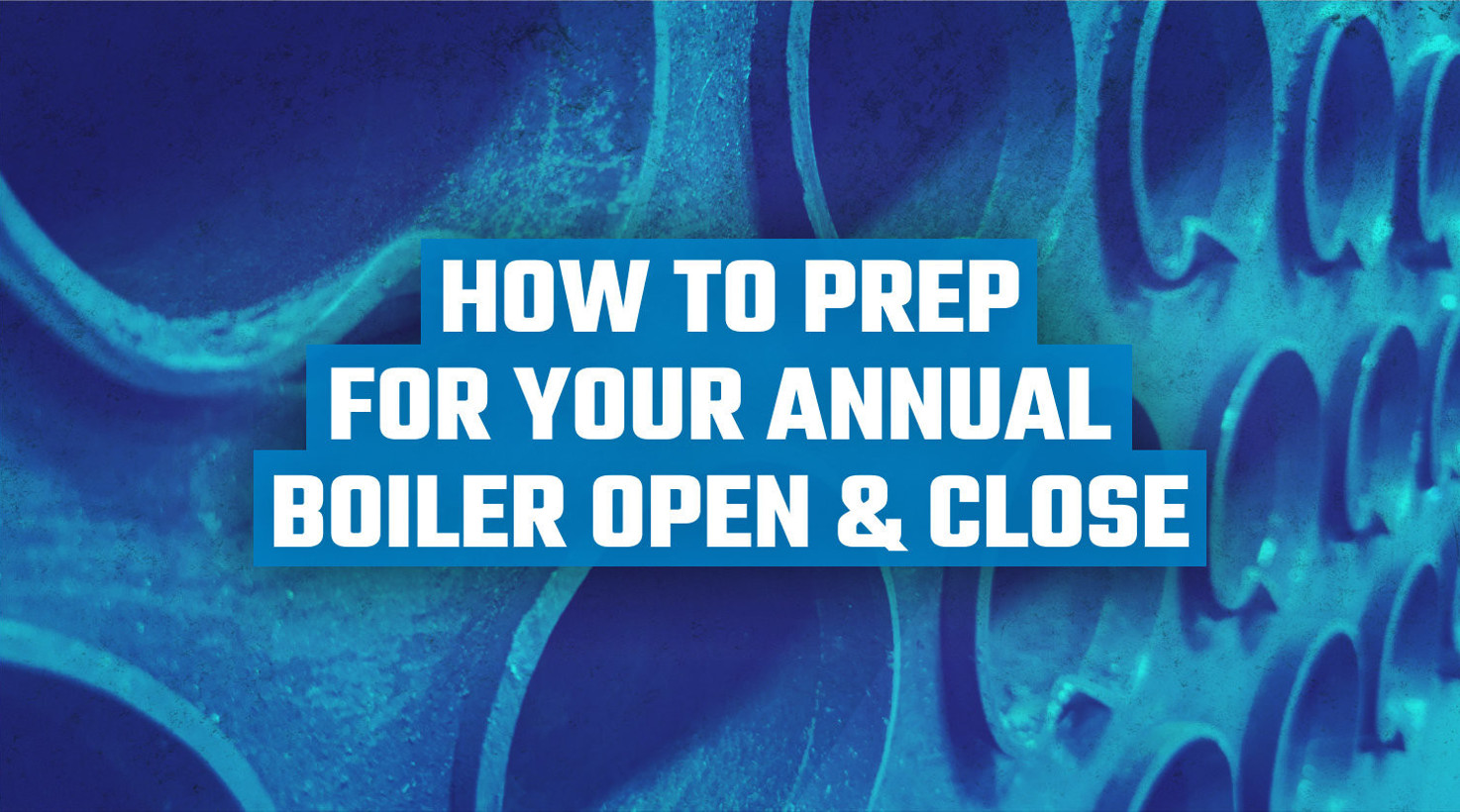Boiler open/closes are one of the most important aspects of maintaining the safety and efficiency of your system. Generally, most managers don’t do them with internal staff and instead call in actual boiler technicians. There are a few things to focus on prior to scheduling a boiler technician for the annual boiler open/close in order to make the process as efficient as possible.
How to Prepare and What to Expect
To ensure a smooth transition to and from the inspection phase, you should coordinate schedules with state or insurance inspectors, production management teams, and service companies.
One of the first things you should do is have your boiler open before the inspector arrives. During a boiler open/close, both the fire and water sides of the boiler are opened and inspected for scale, corrosion, sediment and soot buildup, pitting, and general condition of the pressure vessel components. The top doors and main rear door need to be removed so the fire side and refractory on the back door can be checked. If it isn’t intact, it can burn up your rear door. It’s beneficial to have a seasoned boiler technician do this since another big component of a boiler open/close is making judgment calls.
As far as tools go, there are a few you should always have on hand such as, pipe wrenches and general hand tools, as well as fireside and waterside boiler gasket kits. Additionally, teflon tape, anti-seize lubricant, and pipe dope compounds are essential.
What is the Best Time to Conduct an Open/Close?
Seasonal-use boilers should be done annually, not to mention most states mandate an annual inspection on high pressure boilers. The boiler can be opened at the end of the heating season and left open until fall to ensure the inside is clean and dry while not in use. Production boilers are typically shut down during holidays to reduce interference with production.
Low-pressure boiler systems (less than 15psi) should be done every two years, and a high-pressure system (higher than 15psi) should be inspected annually by a skilled boiler technician.
How Long Does a Normal Open/Close Boiler Take?
The time heavily depends on the size of the unit. For smaller units, time will range from a day to accomplish all goals, while larger units might require a period of 2-3 days, not including time for draining, cooling, and restarting which may vary. This depends on if issues are found.
What are the Advantages and Disadvantages?
Because so many state regulations require an annual inspection, this gives people the advantage of having a period for inspection, service, cleanout, and repairs to insure reliable operation for the year ahead. Some of the biggest advantages are saving energy, time, and money.
Problems on the water side like scale buildup going unattended can lead to a 20% increase in fuel to compensate, in addition to causing inaccurate readings in sight glasses, and can hinder valve movement. Problems on the fire side as small as ⅛ of soot buildup can lead to 47% heat loss. Make sure you’re always conducting a boiler open/close on time.
As far as disadvantages go, facilities without redundant steam equipment inspection will run into unavoidable downtime.
What Happens if it’s Not Done Annually?
If a boiler open/close needs to be done annually and isn’t, you risk accumulations of scale and solids within the pressure vessel and control components which can result in operational issues and critical failures.
Inspections are an opportunity to detect minor problems before they grow and get more costly, and to improve reliability for the next year.
